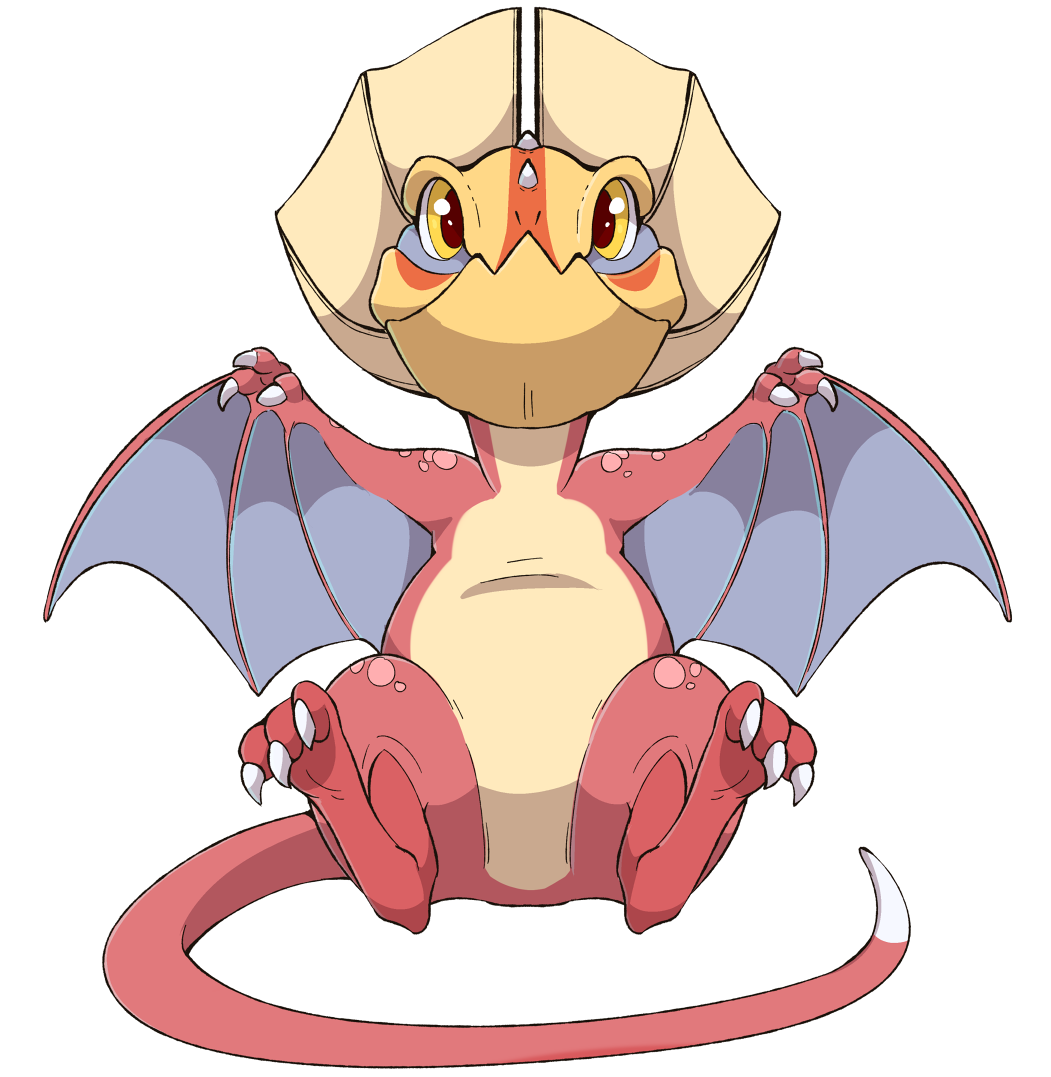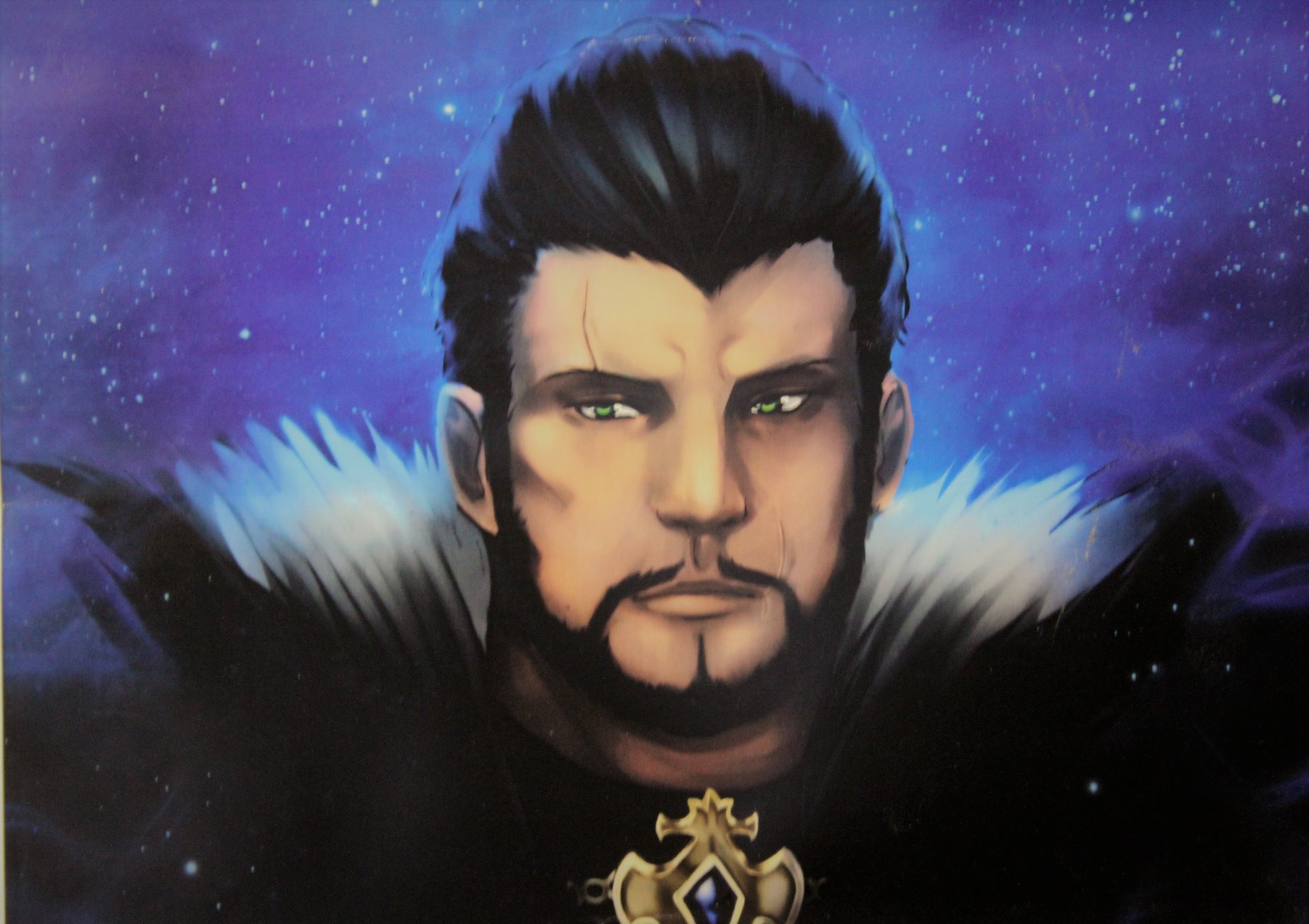I'd like to point out again, that it all revolves around Amaurot.
They didn't sacrifice half the world's population to summon Zodiark. They sacrificed half Amaurot. To the people of Amaurot, ONLY Amaurot mattered. They didn't give one shit about the people on that island, or the people "across the pond," unless it unabashedly profited for Amaurot.
You can see this clearly in the quest "Debates and Discourse"
The Convocation's plan to sacrifice "the burgeoning life on the planet that had started to appear" after the summoning of Zodiark, wasn't to bring back everyone killed by the End of Days, it was to bring back Amaurot.AMAUROTPEOPLED03593
Indeed, indeed. The same can be said regardless of one's opinion on the morality of intervention. There is a clear and undeniable benefit to Amaurot in using this situation as a test bed for our newest creations, that we might develop and refine our defenses against a potential threat to our own fair city.
AMAUROTPEOPLEE03593
How readily you cede the moral high ground! Was not our young friend's point that we have an ethical obligation to aid those in need? Yet not only do you instead elect to focus on the benefit to Amaurot alone, but you also deprive our distant neighbors of the agency to determine their own fate!
AMAUROTPEOPLED03593
You misunderstand me. What benefits Amaurot benefits all creation, I firmly believe, for the knowledge and wisdom we stand to gain from intervention can then be shared with others, empowering everyone to more effectively surmount similar trials in the future...
The Ascian's grand plan of Re convergence wasn't to bring back the population of the whole world. It was to bring back the people of Amaurot.
You miss read what I wrote I believe. I wasn't talking about species, but talking about people in general. Amaurot citizens saw themself as even above OTHER people in the ancient world. They were the end all be all, and elite of the planet.
Thread: Tales from the Dawn
-
08-28-2022 01:22 AM #81Player

- Join Date
- Oct 2013
- Location
- U'ldah
- Posts
- 320
- Character
- Lumei Asuran
- World
- Midgardsormr
- Main Class
- Pugilist Lv 90
(7)Last edited by WellGramarye; 08-28-2022 at 01:26 AM.

-
08-28-2022 01:28 AM #82
-
08-28-2022 01:35 AM #83Player

- Join Date
- Feb 2019
- Location
- Ul’dah
- Posts
- 822
- Character
- Eara Grace
- World
- Faerie
- Main Class
- Paladin Lv 100
I think if your society doesn’t speak on them, and all around you never show their impact, feeling unique about your emotions isn’t as illogical as some claim it to be. He doesn’t need the whole world to visit the Elpis flowers, just enough different people for a representative sample.
But we can’t understate how it important it was to him in that moment to separate himself from his emotions. He describes his capacity for love as a weakness, “that let this wickedness fester.” However necessary it might of been to remove Athena’s influence, the manner in which he went about it tells us much.
While I think it true that emotions can be dangerous to both the Ancients and the Sundered, the degree is obviously different. The short story mentioned a child creating a horrible concept out of fear that they needed Venat to defeat. Then there’s Hermes and Athena/Lahabrea, all of whom nearly single-handedly brought ruin to the world by themselves. The extent to which this is a threat cannot be understated, and while the Sundered world does have similar moments, they rely heavily in external circumstances in order to match that level. The Allied tribes needed large quantities of crystal and the knowledge of the Ascians, Ilberd needed the Eyes, the Alchemist questline ended in failure and so on. These aren’t equivalent when all it takes for an Ancient to destroy the world is sit and think.(0)Last edited by EaraGrace; 08-28-2022 at 01:38 AM.
-
08-28-2022 01:39 AM #84Player

- Join Date
- Jul 2015
- Location
- Amaurot
- Posts
- 4,449
- Character
- Tristain Archambeau
- World
- Cerberus
- Main Class
- Black Mage Lv 90
I'm not sure what you're basing this on. Your inferences aren't even implied by the text in question (in fact, they're explicitly contradicted by it, by both interlocutors in different ways), but on the specific point of the sacrifices, nothing I am aware of implies it was only Amaurotines who sacrificed. Quite the opposite:

Another:Emet-Selch
Before the great sundering, there was one world. A world that knew naught but peace and prosperity.
Until it was faced with a crisis. Unprecedented, terrifying. Civilization found itself perched upon a precipice, staring into oblivion.
But through prayer and sacrifice, the will of the star was made manifest.
Zodiark was His name, and by His grace was the calamity averted.

1) Source? 2) Amaurot had already begun working on methods to resolve the situation as noted here. Even if we were looking at this purely through entirely selfish, pragmatic lenses, there is no reason for Amaurot to allow the incident to spread to the point it became uncontainable and left only it as a source of potential fuel for Zodiark (a primal who, in turn, was their last resort based on the JP dialogue of the Amaurot instance, as it refers to their other attempts failing due to the warping of creation magicks.) This is in addition to what the Watcher mentioned about their research to try understand the causes of the incident. To me, it sounds like you're trying to force a conclusion out of this in disregard of the sources involved.(11)Last edited by Lauront; 08-28-2022 at 01:57 AM.
When the game's story becomes self-aware:

-
08-28-2022 01:42 AM #85Player

- Join Date
- Oct 2013
- Location
- U'ldah
- Posts
- 320
- Character
- Lumei Asuran
- World
- Midgardsormr
- Main Class
- Pugilist Lv 90
You realize that at the point that Zodiark was summoned, only Amaurot was left, and that half of mankind, is only half of Amaurot right?
The Convocation, and Amaurot itself had a policy of non-intervention. You can see this in the Tales Story- Ere Our Curtain Falls, the quest Debate and Discourse as well as a few other places I can't be arsed to dig up on. Its the whole reason that the Azem's, Venat and [insert player], were lauded as being free spirited trouble makers and often censured by the rest of the Convocation. Amaurot was the end all be all for the citizens of Amaurot.
Also, to point out, please tell me the name of any other city on the planet, at the time of Amaurot. I'll wait.
The only places we ever see are Amaurot and its research facilities (Anyder, Elpis, Pandaemonium) which are all still Amaurot. The Pre-sundered world is shown through the lense of hypocritical selfish god-lings.(5)Last edited by WellGramarye; 08-28-2022 at 02:21 AM.

-
08-28-2022 01:45 AM #86Player

- Join Date
- Sep 2021
- Location
- Solution Eight (it's not as good)
- Posts
- 3,029
- Character
- Ein Dose
- World
- Mateus
- Main Class
- Alchemist Lv 100
You did! Dreadfully sorry it got drowned out by people that you can now very clearly understand why I put on ignore.
No, I can't. Because here's something super defining to me about the story of Zodiark, Hydaelyn, the Sundering, and most of the Ascians: they've completely blown out the scale of human comprehension of their actions. And that's good and fine. Because what that generally does for me is turn their actions and crimes into an abstract; I can comprehend the scale of neither the Zodiark sacrifices or the Sundering, so they become general vagueries. 'Sacrifice life to prolong society' versus 'break society to continue lives'. It's like reducing a mathematical problem to a lowest common denominator. It's like how the insane actions performed by gods in myth and legend don't really map to human laws and crimes, and none of their followers treat those gods like they do (although as mentioned many pages back, some religions do in fact call out their gods, it's just not on 'hey that's a crime' scale).
And that's actually helpful, because it makes Venat and most of the Ascians* actually... you know, relatable. 'Smashed planets into each other seven times to bring back old world' becomes 'did bad to bring back home', because my brain can't comprehend how enormous the Calamities were; and that's good, because I can sympathize with 'did bad to bring back home'. 'Sundered planet to stop sacrifices to ensure life exists in some form even if it's not what I know' becomes 'hurt people for the greater good' because frankly, the Sundering is baffling, but I can relate to 'hurt people for the greater good'. It even helps boiling down specific characters' actions: Fandaniel's actions both as Hermes and Amon are unfathomably crazy, but because of that I boil Hermes' down to 'wanted to understand uncomfortable truths, took said truth bad', and Amon's down to 'hurt people due to existential terror about death'; and I can relate to all of those.
Amaurot was not a part of the story that functioned on levels like concrete politics and population numbers, and it wasn't meant to; it's written as sort of a parable, much like its inspirations, Atlantis and of course its namesake. So the fact the scale of things stops being relatable isn't a bug, it's a feature.
*The one exception on this is Emet-Selch, because his crimes as Emperor Solus actually are things that I can understand on a human scale, those are real-life war crimes that I can't abstract. But that's a very different conversation, that we will not be having here! Especially not now, because it's very late here, I'm going to bed, and I'm probably not checking this thread again.(4)Last edited by Cleretic; 08-28-2022 at 02:07 AM.
-
08-28-2022 01:58 AM #87Player

- Join Date
- Nov 2016
- Location
- Limsa Lominsa
- Posts
- 973
- Character
- Miyo Mohzolhi
- World
- Sophia
- Main Class
- Scholar Lv 100
Honestly, given what we've seen of Ancient society, I don't think there's even some sanitarium or Pandemonium-like prison to send the "overly emotional" people to. I get the feeling they'd rather just completely ignore the inconvenient emotions, and pretend they don't exist, up until it interferes with their work or social life. At which point they'd "reprimand" the offender (again, refer to the Amaurotine shade who criticizes our clothes), and then desperately continue to ignore the emotions.
Hence Hermes thinking that he's "broken" in some way for feeling so strongly. Not that he feels sadness, but that it fills his mind so much that the Elpis flowers change to a gloomy colour in his presence.
So it's probably closer to the analogy of "not manly to show certain emotions", although much more widespread and comprehensive. I don't have any definitive evidence for this, of course; the obvious one would be Erichthonios and how Lahabrea said his emotional outbursts are childish, but that could just be Lahabrea being a jerk.
Fair, the word "actually" was likely badly used, and I could have phrased it better. (I can't do so now, because it's late here. Maybe someone else can phrase my point more clearly.)
I disagree that there are no institutions in the modern era (by which I assume you mean the present setting in Eorzea/Etheirys) for dealing with strong emotions. There is always the institution of friends and companions noticing that something is awry, and choosing to help. Which is a bit of a running theme: a lot of the tragedies and evils that happen in the story are because of people making choices they think are inevitable, but are not actually so.
For example, Raubahn mentions taking some of the blame for Ilberd's actions, because Raubahn chose not to pay closer attention to his former friend's grief and growing rage. This is significant, because it means Raubahn acknowledges that this is a choice he could have made, accepts that he did not make it, and also accepts that he may or may not make that same choice in the future, given his fallibility as a person. Which implies that Raubahn, and implicitly Eorzean society in general, are aware that discussing strong emotions with others and handling them with help is a potential choice to make, and often (not always, but often) the correct one. That is, in my speculation, not a societal understanding that exists in the time of the Ancients.
This is also present with Alisaie's comments about understanding Emet-Selch, and Thancred's comments about understanding Fandaniel. They recognize the strong emotions, and recognize that those emotions exist and the people involved are feeling them, even if Alisaie and Thancred don't agree with the actions that those emotions led to.
If nothing else, we do know a lot of the combat classes teach the importance of techniques to maintain calm and focus, so that's a common piece of institutional knowledge that the Ancients appear not to have, given the events in Pandemonium. I say "institutional" because it's clear some specific Ancients (eg Themis) know of calming techniques, but it appears to be based on personal experiences and tendencies, rather than something taught.
(I think the Thavnairan prayer for perseverance in the face of hardships might be too local to that area, since there doesn't seem to be a similar well-known prayer in Eorzea or the Far East. Those other prayers appear to be asking for help from the gods, rather than the Thavnairan one acknowledging the gods cannot help you, and so you must help yourself.)
I'm a little skeptical about our Azem being the "only person who has the moral high ground", because we don't know if any other person living in that time also had the same ideas and opinions as Azem, but didn't have the resources or power of the Convocation, both in terms of "being on the Convocation gives you these resources" and "to be on the Convocation in the first place you must be this powerful".
As events have proven, Azem failed to stop the Final Days. They failed to stop Zodiark's summoning. They failed to stop Hydaelyn's summoning. And they failed to give a reason to anyone for going off on their own.
Now, I don't blame Azem for being ineffectual in the face of the Final Days; literally everyone else other than the Convocation (and Venat) were ineffectual in the face of the Final Days. I do have some puzzlement that both the pro-Zodiark and the anti-Zodiark factions of Amaurot have no idea what Azem was thinking, and thus could not even speculate. Doylistically, I know this is because the devs don't want to intrude on our own player headcanons, but Watsonianly I think there should be at least something, even if it's just a reason not to give a reason. It is what is written, so it is what we have to work with.
Therefore, either Azem did not have the moral high ground, or Azem did have the moral high ground, but was not the only person who did so.
As for the point about hubris, that is certainly the case. To bring it back to the short story, my read is one of the themes is that the Ancients should have been asking themselves "What have we discarded or dismissed that we should not have?" They thought they knew as much as they could, and what they forgot or didn't know they could refer to the archives, but that doesn't help for the things that even the archives are too new to hold.
A possible analogy (that might be flawed) could be the Foundation series by Asimov. The scientists all go to Foundation, and the psychologists and psychohistorians all go to Second Foundation, and after a long time the people at Foundation can't remember that they're lacking in psychological knowledge.(4)Last edited by YianKutku; 08-28-2022 at 01:58 AM. Reason: 3k character limit
-
08-28-2022 02:19 AM #88Player

- Join Date
- May 2014
- Location
- The Interdimensional Rift
- Posts
- 3,600
- Character
- Vicious Zvahl
- World
- Excalibur
- Main Class
- Machinist Lv 100
I did.
I think that mostly your perception here is based off of what's shown in game. We always have multiple characters interacting and speaking of their interactions/decisions with regards to the other characters in modern times. However, in the Ancient world we're only getting these one time snapshots that are hyper fixated on just a few Ancients. With the most recent jaunt in Abyssos being the only thing so far to really put forth that they do have families, and that mother and father relationships are important.
It is here that we find that Ancients do feel and think the way you describe Raubahn doing. Agdistis in P7 goes against Lahabrea, and shows what really transpired with regards to Hesphaistos and Athena. I haven't replayed and catalogued it yet, so I can't speak on it in exact terms without getting to the game, but she was clearly a friend counselling her friend, though admittedly on her deathbed (but we wouldn't have this drama otherwise, would we?).
I guess I was more thinking in line with like, there aren't any therapists that we've seen in the Sundered world. A lot of folks joke, not necessarily here either, that the Ancients just needed to go to therapy. I'm just saying the Sundered need to get in on that action, too.
 (9)
(9)
(Signature portrait by Amaipetisu)
"I thought that my invincible power would hold the world captive, leaving me in a freedom undisturbed. Thus night and day I worked at the chain with huge fires and cruel hard strokes. When at last the work was done and the links were complete and unbreakable, I found that it held me in its grip." - Rabindranath Tagore
-
08-28-2022 02:28 AM #89Player

- Join Date
- Aug 2019
- Posts
- 334
- Character
- Floria Aerinus
- World
- Balmung
- Main Class
- White Mage Lv 80
Like, back in 5.0, I would have agreed with you to a degree, and in those days I was much less bothered by the specific morals and choices in the Hydaelyn vs. Zodiark scenario beyond what they abstractly represented. Though society in shade Amaurot felt human and relatable, it was still very far removed from the present of the setting. It didn't provoke a sense of palpable, immediate injustice in the same way as the suffering of the people on the First.
But in Endwalker, you spend literally hours and hours directly hanging out with the Ancients-- Not just phantoms, but the actual individuals. You learn a bunch of their weird little quirks and make friends with them in some of the quest chains and in Pandaemonium. And you get to know all the major parties in the Sundering intimately. Regardless of the time travel conceit, they are presented as much as 'real people' to me, the player, as the NPCs in Ul'Dah, and thus I feel direct empathy for them in the same sense. I want what is best for them not as plot devices but as people, and I cannot help but apply the same unabstract moral standards to their situation.
If you met Zeus in real life, he'd cease to be an interesting mythological figure and become a complete asshole who should probably be in prison. Likewise, without actively disliking the Ancients and engaging with the content involving them with more emotional distance than normal, I don't know you can continue to view them and their circumstances in a distant, allegorical light. One of the aether current quests has you escort this clueless lady with no sense of direction to her girlfriend on the upper half of the zone, and then the two of them gossip about people's love affairs at the end of the quest. She's not a myth, she's a normal person. Assuming she wasn't a sacrifice, how can I view her eventual probable death in the Sundering any differently than the doomed people in Amh Areng? How can I not want to help her, and hold the assertion that it was okay for her to die to the same critical standard as I would anywhere else?
I literally had coffee with the person who did the Sundering. All that separates her presentationally from a character like Merlwyb is a thin layer of time travel technobabble that Pandaemonium treats more flippantly with each successive patch. I cannot help but come at her - and everything - from the same place as any other character. The way is true for the Watcher; once I get a short story telling me about his personal life, he stops being representative of a concept and becomes a person to be held to account by the same standard as all people.
If the writers meant the whole situation to be processed in the same way that you apparently have, this was a huge mistake.(20)Last edited by Lurina; 08-28-2022 at 11:01 AM.
-
08-28-2022 02:31 AM #90Player

- Join Date
- Oct 2013
- Location
- U'ldah
- Posts
- 320
- Character
- Lumei Asuran
- World
- Midgardsormr
- Main Class
- Pugilist Lv 90
We can't infer anything about anyone whom isn't mentioned. What we do know is that Azem (player insert) was a better person than everyone who is mentioned that existed post sundering. Yes, even Hythlodeus, who is an enabler and to be honest should have been named Loki.
(6)



 Reply With Quote
Reply With Quote








